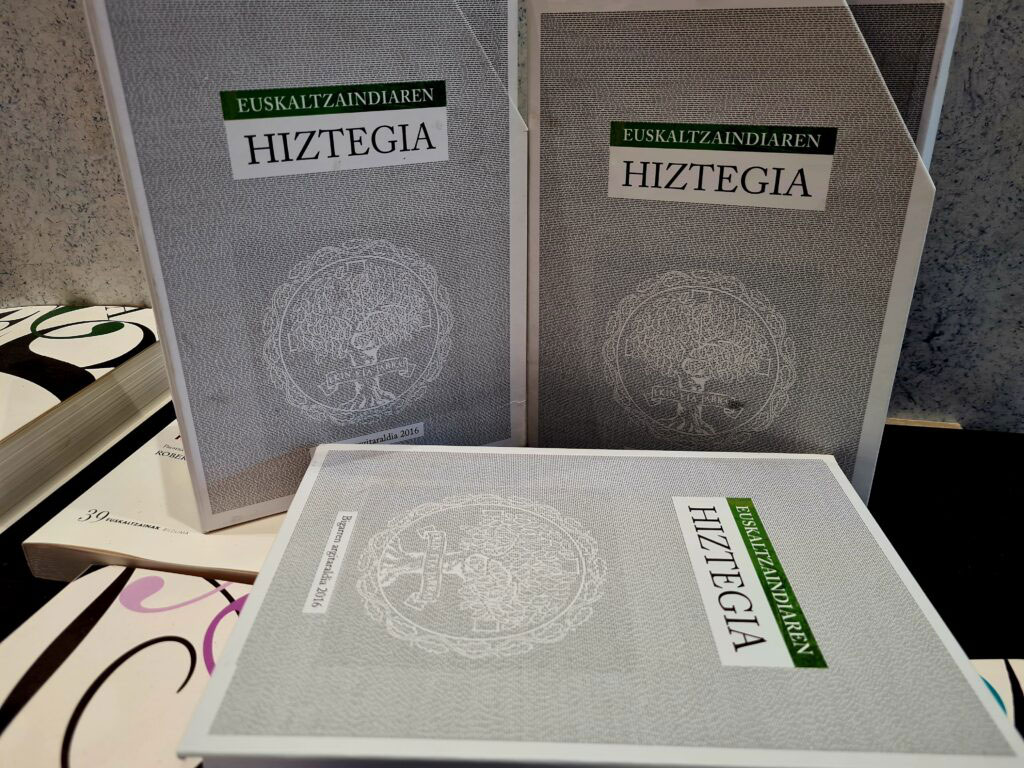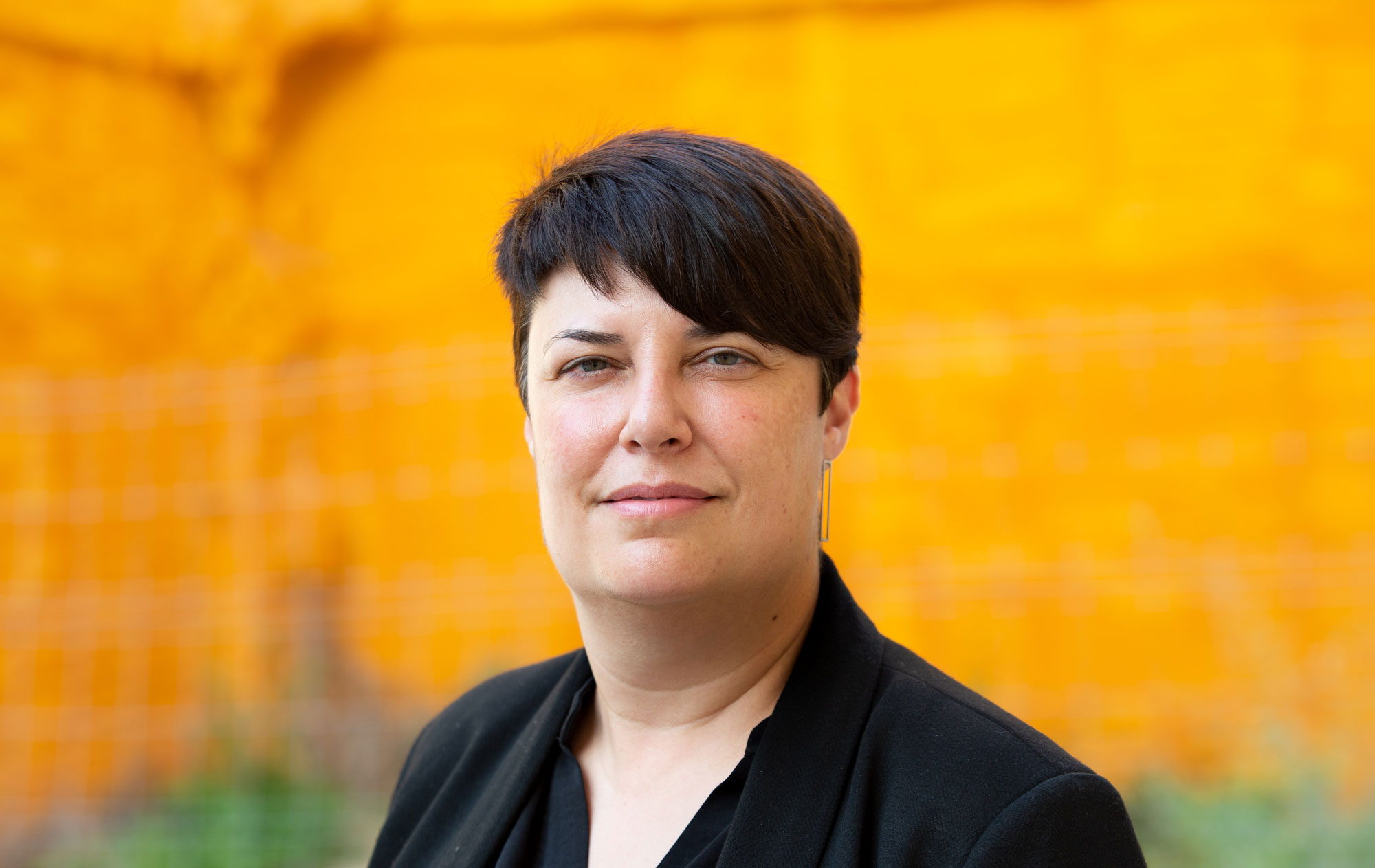"The Basque language of the future will be united, or will not be"
- Xabier Kintana (Bilbao, 1946) was an academic intern at the age of twenty, but the foundations of the union were laid when the famous assembly of Arantzazu took place, which was far away. During the military service. Since 1996 he has been a full academic and since 2002 he has been secretary of the institution. He lives in Erandio.

Half a century of Basque united, who should have told those of you who were in those sauces in 1968...
Since its inception a hundred years ago, the Basque Language had as its objective the unity of the Basque language. The point was that if we were to unite, we had to do it around the middle dialects. There are two dialects on the borders, Zubero and Bizkaia. The Zuberoaco is, in the end, small and not so important, but the Biscay is very important, they are almost half of the speakers... In Bizkaia there was the idea that, through the path of Sabino Arana, a confederation had to be made between the Basque states... According to this, all dialects had to be worked. If the union had been around Biscay, many people would have said yes in Biscay, but that was not the point, the point was that a balanced and all-Basque union was needed. And it is obvious that the dialects of the borders, in the languages of the whole world, are often the most distant.
It took 50 years to overcome it, since it was founded in 1918.
It should be noted that these 50 years were not normal years. The Francopean Academy of Sciences did not exist legally; if it was tolerated, but... Unity did not arise because there was no way to raise it.
Finally, the creation of the union began in 1968. How did you experience this process from the “exile” of military service?
I was a supporter of the Union even before the soldiers left. I thought it was necessary. All the languages of the world, when they reach a level of officialdom, have had to overcome the challenge of the unity of desire and not of desire. Teaching, advertising, etc. This requires the existence of an approved language. The fact is that Lekona, then head of the Basque Government, said that all the dialects had to be worked on, etc... Finally, Gabriel Aresti encouraged him to hold the assembly of Arantzazu, in view of the celebrations of the 50th anniversary of the Basque Government. "It's okay to eat and drink, but this organization also has a job to do," he said, and asked to be put on the record. This led to a subsequent meeting.
As a driver, but Mitxelena as a guide.
The union leader, the product designer, was Luis Mitxelena, yes. His professionalism and patriotism were indisputable, he was condemned to die in time of war... I mean, it was also acceptable to the Sabines, they looked good. This was very important because those of us who supported the union at that time used to be leftists. Communist, Marxist... I don't know how many things they told us. [Father] Villasante the Marxist, yes!
In one way or another, they laid the foundations of unity in Arantzazu.
Oh, yeah, yeah. First, the spelling. Then the declination, and the verb. Simple things were decided, but the path was marked. I came back to the Basque Country when they were studying the verb, from military service. And from a political point of view it was surprising: although the creation of unity was generally encouraged by the people of the left, that as leaders we all recognized Mitxelena, and with Mitxelena belonging to the PNV, it would have been very easy for the PNV to say that "Mitxelena has made unity and we will assume this, because she is our man." None of us would have said Chinese. But they didn't know how to take advantage of it. I would say that the leaders of the PNV at that time did not know that the union was being made, as if it were a strange thing in Jupiter. Until Garaikoetxea was president, no step was taken in this direction, in favor of Mitxelena. I would say that Mitxelena walked quite alone, driven by people on the left or others.
Zelangura, the process went on.
Yes, but it was surprising that at the end of the Arantzazu meeting, no steps were taken to continue down this path.
The political context would not have helped. In the South Basque Country there was Francoism, among others.
It wasn’t for that, politics didn’t go away or resist, Franco and most of the patriots here didn’t fit into it.
But perhaps for the patriots of that complicated time, language was not a priority.
In Bilbao, a deseusaldunda town, the foundations of the nationality laid by Sabino Arana were false and very harmful. “Language is not important, it’s race.” If you want to integrate a bunch of immigrants we've had, that's suicidal to say. There was this atmosphere, and the Basque, well, in the village, in the family... had a little place, but not for practical things. Imagine that after the war the Basque language began to be used as the working language of the Basque Country, before it was done in Basque. [Federico] Krutwig encouraged the use of Basque in meetings and. Krutwig brought a modern, international perspective to the Basque Country. Even some excesses.
After the meeting in Arantzazu, at the beginning, you said that there was not much progress along the way.
Yeah, that's right. Elections were held to elect a new minister. They were not done before, but someone gave the impression that they had to be done according to the statutes. There were several "conspiracies" and some decided to introduce Father Villasante with the approval of Mitxelena. He added up most of the votes. And in Villasante’s time an important thing was done: until then there was almost no committee, all things were decided among all. And he said, "It can't be like this." The committees were made, each of them signed up whenever they wanted and then the decisions were taken to the plenary, where they were ratified, amended... With this system the final touches were given to writing, to spelling. There was really no problem with that. The auxiliary verb was harder, I was on that committee.
Why is it so hard?
Because there are great differences according to dialects: I have given it to you, I have given it to you, I have given it to you. Among us, because of the prestige that Krutwig had, many of us opted for the classic lapari. Mitxelena preferred the system of guipuzcoa and navarre. When we saw that the Biscayan language was clearly not going to come out, we wanted at least to include as many elements of the Biscayan language as possible in the Basque language. So that the people of Bizkaia did not say, "Hey, this united Basque language is not understood, it is not ours at all." That's why, in the verb "to be", for example, it's me, it's you, it's him, and it's us, instead of us, to judge. It is said in Gara Bizkaia, but also in Lapurdi, Navarre and many other places.
Once in a while, the debate about the relationship between the union and the dialects returns. I’d say we’re at a time like this.
There are scientific criteria and criteria of interest. Some people say that "the most natural is the dialect", "life is there"... But there are some people who say that "I have never studied anything, neither the dialect nor the united, but at least since I know the Basque language, I will bet on the Basque language, so I don't have to learn the united Basque". Once a mayor of Ermua said to me, “I don’t need Basque if I have enough to talk to the locals.” “I don’t read anything because I don’t understand English.” But you don’t know written Basque, neither united nor Basque. And you say the opposite of united, to hide in your dialect at the level of speech, but not in writing. There are many people in this: the only one who knows is from the people, and then he defends because he is interested in it, so as not to be embarrassed. Because someone can say, "Why don't you know the other one, then you're illiterate? Do you accept illiteracy? ". You can't accuse a person of that in the face, he's not very polite, but...
It is said that if a dialect is lost, the Basque language is amputated. On the other hand, it is evident that in highly developed languages the difference between dialects is much smaller than between dialects. Should we accept this loss without trauma?
Undoubtedly, it is a loss that has occurred in all the languages of the world. However, I would add that we must make an effort to incorporate some of the peculiarities of dialects into the united "personal". Some of us want to do that, at least.
"The government is constantly giving new rules and making the speakers mad." Right, the myth...?
It's a myth. And some things are not transmitted through the rule, but through reading. "Wow, so far this has been said like this and now look at how this writer is doing." Therefore, it is not that the Basque Government says so, but that the customs change.
What will the future bring?
The Basque language of the future will be united, or will not be. And if it won't, it's because it's going to be lost. To think in the 21st century that a language can live apart from literature, without taking into account the technological means that we have, is a dream.
"The Quintanakeries"
"Writers, journalists... we must make an effort to promote the peculiarities that dialects have," says Xabier Kintana. The problem, however, is that it is not always easy to reach an agreement within the Basque Country. The secretary of the institution mentioned the example of the word "brother" used only in Bizkaia: "I am in favour of joining the union, that is, make it the norm, because it enriches it. But the people of Gipuzkoa do not feel represented by this word and... That’s what they call “quintanism.”
Pintxo pot, or servitude to the edge
"I would say that we have gone from the absurd purism of the time of Sabino Arana to the opposite extreme. Like a pinch pot.” Obviously, Kintana complains about the inability (or enthusiasm) of the Basque language to create its own vocabulary: "Any midfielder invents anything and if you put tx, it's Basque. Of course we have to use international language to say ‘quantum’, but didn’t we have a better word for ‘pintxo’? In Basque, there is a pebble, like the Morun Pintxos. The chick is the non-vegetable part of the food, the meat, or the fish. I suggested that those who are sold with a stick in their taverns should call it a chopsticks or something like that. Of course, the word must be invented in season, now it's too late. No one asked how I would say it. Put the pot on and you’re done.”
This interview has been published by Triuka and we have brought it with us thanks to the Creative Commons license.
Euskaltzaindia's motto is "ekin eta jarrai" ("ekin eta jarrai"), the outlawing of Euskaltzaindia. I don't know why the Academy wasn't outlawed, all three words appeared on its logo. The allegations have been made with less - and (those of one age remember the cassette of The Mondragon... [+]
Euskararen biziberritzea Ipar Euskal Herrian jardunaldia antolatzen du ostiral honetan Baionan Euskaltzaindiak. Euskararen alde egiten dena eta ez dena eztabaidatzeko mementoa izango da. Eragileak eta politikariak bilduko dira egun osoan.






















